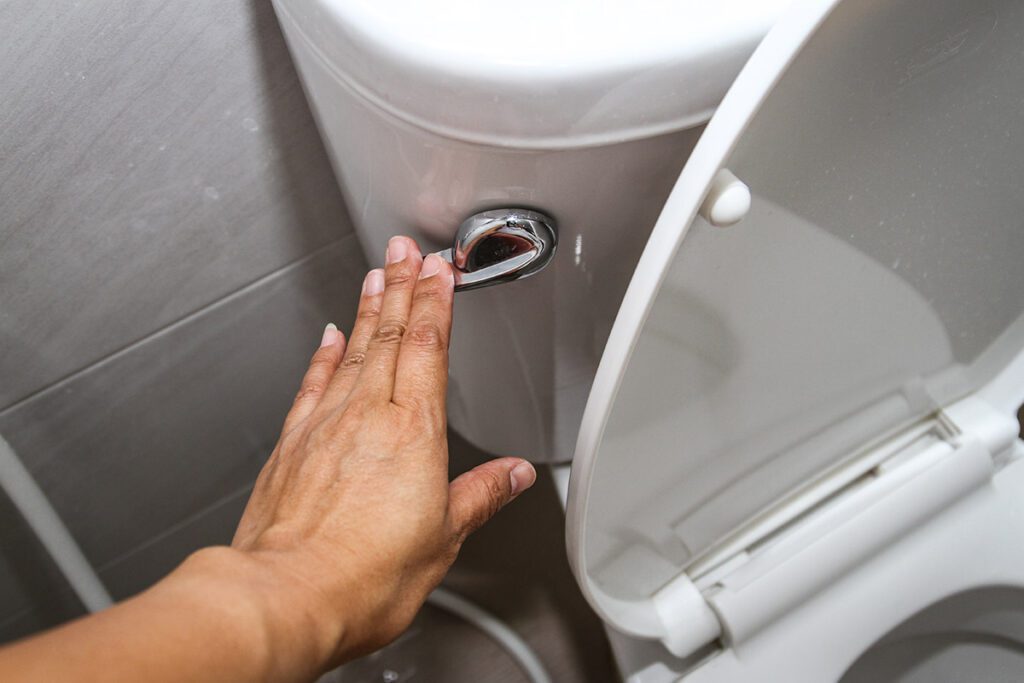What Not to Flush
When you use your toilet, shower, washing machine or dishwasher, waste water leaves your home through pipes that connect to the city sewer system.
A clear drain is a happy drain — please be kind to your toilet and sewer system. Many materials frequently flushed or poured down the drain can harm the pipes that connect to city sewers as well as the city sewer system. Every property owner connected to the city sewer system can be a potential contributor to sewer problems, and a potential victim of those problems.
Even if they’re small, even if the package says “flushable,” some everyday items can cause messy and expensive problems for the plumbing in your home or health care facility.
These items can also get caught in the machinery of your local sewer treatment plant.
Products that might seem safe to flush down the toilet, such as personal care wipes, dental floss and paper towels, don’t dissolve well – or at all – in water. If a scrap of undissolved material gets caught on a nick, bend or bump within a pipe, it can trigger a growth of buildup that could cause a sewer back-up in your home, workplace or neighborhood.
Putting the wrong things down the drain can damage the sewer system, cause sewer backups in your home and sewer releases to the environment. Anyone who uses the city sewer system should be responsible for what they flush or pour down drains.

Don't Flush These Things
Basically, the only thing you should ever flush down a toilet is human waste (urine and feces) and toilet paper. Here is a list of some of things to keep out of the toilet:
- Bandages and bandage wrappings
- Cat litter
- Chemicals and solvents
- Cigarette butts
- Cleaning wipes of any kind
- Coffee grounds
- Condoms and wrappers
- Cotton balls and swabs
- Dental floss
- Disposable diapers
- Facial tissue
- Fat, cooking oil, grease
- Hypodermic needles
- Medications, vitamins, supplements (put original containers in a plastic, zip-lock bag and throw the bag in the trash)
- Mini or maxi pads
- Moist bathroom wipes
- Paint
- Paper towels
- Tampons
Fats, Oils and Grease (FOG)
Grease in sewer pipes causes sewer maintenance problems for property owners and the city. Never pour grease in your sink drain and try to use your garbage disposal less.
Grease is a byproduct of cooking. It comes from meat, lard, oil, shortening, butter, margarine, food scraps, baking goods, sauces and dairy products.
When grease washes down the sink, it sticks to the insides of the pipes that connect your home or business to the city’s sewer. It also coats the insides of the city’s sewer pipes.
Flushing meds and chemicals can harm aquatic life
Everyday chemicals from medications, supplements, disinfectants and household cleansers can travel from homes and health care facilities through sewers and wastewater treatment plants.
These chemicals cause harm to the marine environment and aquatic life when they are discharged to streams, rivers and oceans.
Medications and supplements should not be flushed or disposed of through the toilet or drain. They should be wrapped and thrown in the trash, brought to your local drug take-back site, or disposed of in accordance with your health care facility’s guidelines.
Unwanted household cleansers, topical solutions and disinfectants can also harm the marine environment and should not be poured down the toilet or drain. You should use them up, bring them to your local household hazardous waste site, or follow your health care facility’s disposal guidelines.